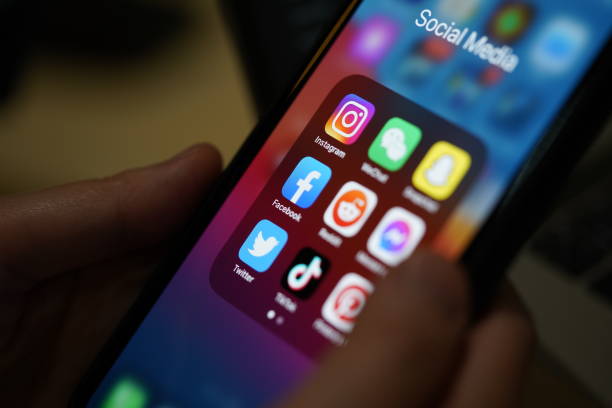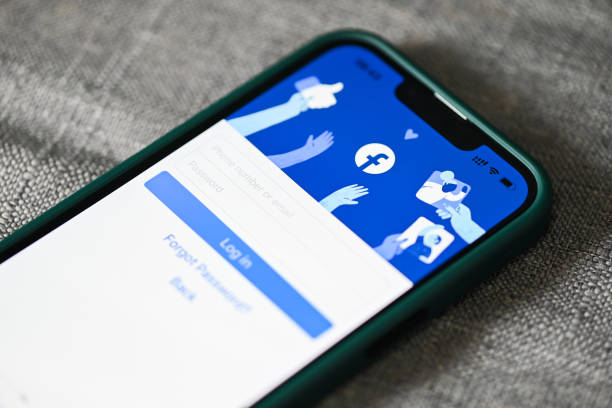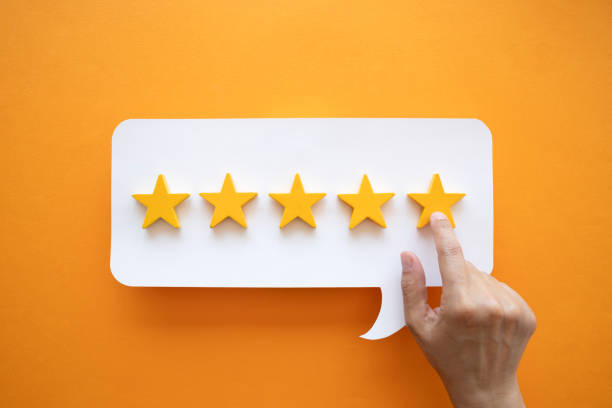Supercharge Your Local SEO Strategy with Social Media
How Using Social Media Can Boost Your Local Search Rankings
Do you own a local business and want more customers walking through your doors?
Improving your local search engine optimization (SEO) is crucial for getting found online by nearby customers.
But simply optimizing your website isn't enough these days. Social media has a major impact on local SEO that you can't afford to ignore.
By leveraging social platforms like Facebook, Instagram, Twitter and more, you can give your local search rankings an extra boost.
In this guide, we'll explore all the ways an active social media presence can turbocharge your local SEO efforts and help you outrank local competitors.

Why Does Social Media Affect Local SEO?
You might be wondering - how can posting updates on Facebook or Twitter possibly influence where my business ranks in Google's local search results?
Well, search engines like Google take lots of factors into account beyond just your website content and links.
Social signals like follows, shares, comments, reviews and overall engagement across social platforms are increasingly being used by search algorithms to determine which businesses are most popular, relevant and authoritative for local searches.
The basic idea is that a business with an active, positive social media presence engaging with local customers is likely more trustworthy and valuable than one with no social activity. It acts as a strong relevance signal for local ranking factors.
![]()
Google Cares About Your Social Profiles
One key way social media impacts local SEO is through your actual social media profiles themselves.
Optimizing your social media business pages with the right name, address, phone number, hours, photos, descriptions and other details is crucial.
Just like your Google Business Profile listing, search engines can pull information from your social media profiles to better understand your business category, products/services and physical location.
An incomplete or inconsistent profile can negatively impact local rankings.

Social Posts Provide Fresh, Localized Content
Speaking of content, social platforms offer businesses a great way to continually publish fresh, location-based content.
Every new social media post you create is another chance to reinforce your local relevance to search engines through text, images, videos, hashtags and geo-tagging.
If you own a restaurant, for example, posting mouth-watering food photos tagged with your city is a strong local relevance signal.
Or you could post about an upcoming local event that helps associate your brand with the local community.
How does it work?
An example: Let's say you own a plumbing company in Denver and frequently use local hashtags like #denverplumbers and mention @denver on Twitter.
You also share photos and videos showcasing your team doing jobs around the city.
That location-based social media content tells Google your business is extremely locally-relevant for plumbing searches in the Denver area.
It can give you an edge over competitors not using that local social media strategy.

Social Media Boosts Local Link Building
One of the most well-known ranking factors for local pack results is having a strong profile of local citations and links from other locally-relevant websites. You can leverage social media to help with local link building.
Through social sharing, it's much easier to get your local business featured on neighborhood blogs, news sites and influential social accounts followed by your local audience.
Those links from locally-trusted sources are pure gold for SEO.
For example, you could run a contest giving away freebies and get mentioned and linked to by popular local influencers when they share about it on their social media.
Or sponsor a little league team and get a link from the local news site when they cover it.

Social Engagement = Local Relevance
Beyond links, every social engagement metric like comments, shares, follows and reviews act as a relevance signal for search engines.
If your business is actively interacting and engaging with local customers online, that's a clear sign your products and services are in-demand and relevant for that geographic area.
On the flip side, if your business has zero engagement on platforms like Facebook where many locals are active, that lack of local social relevance could be hurting your rankings.
Real-life example:
Let's imagine two pizza places in your town - one has 10,000 Facebook fans, tons of glowing reviews, and their posts showing tasty pizza pics regularly get hundreds of likes, comments and shares from locals.
The other pizza place barely uses social media at all, has under 100 Facebook fans, almost no reviews, and zero engagement.
Which pizza place do you think Google would rank higher for local "pizza restaurant" searches given those social signals?
The locally popular and socially-engaged place is definitely going to have an SEO advantage.

Social Platforms are Search Engines Too
Here's another way social media ties into local SEO that often gets overlooked - many people use social networks as their primary search engines!
Studies show around 35% of consumers visit a company's social media pages to search for more info before visiting their actual website.
If you don't have an optimized, active presence on Facebook, Instagram, Twitter etc., you could be missing out on all those potential customers looking for your local business through social search.
Having detailed, informative and engaging social profiles boosts both local search visibility and click-through from social referral traffic.

Reviews on Social Drive Local Purchases
Online reviews have long been a major trust factor for brands and local businesses.
While Google reviews may get top priority, review signals across social platforms like Facebook, Yelp and industry-specific sites also influence local rankings and purchasing decisions.
Did you know that 63% of consumers check Google reviews before visiting a business locally?
And 79% trust online reviews as much as personal recommendations!?
Managing your review portfolio across popular social review sites is critical for local SEO success.
Respond professionally to all reviews, try to resolve any negative issues, and get as many positive reviews as possible to show search engines and consumers you're a trusted local option.
![]()
Social Ads Can Boost Local Relevance
One often underutilized way to leverage social media for local SEO is through paid social advertising targeting your geographic area. Running location-based ads on Facebook, Instagram or Twitter gets your brand in front of more nearby potential customers.
Paid social campaigns associating your business with cities, neighborhoods, local interests and events only reinforces your local relevance signals to search engines. You'll drive more local website traffic, engagement metrics and hopefully local conversions too.

Social Analytics Reveal Local Audience Insights
What better way to understand and reach your target local customer base than using social media analytics and audience insights tools?
Facebook Analytics, Twitter Analytics, and social media management platforms like Hootsuite and SproutSocial provide a wealth of demographic, interest and location data about your current and potential followers.
With those rich local audience insights, you can craft hyper-targeted content to better appeal to your local community and discover new segments to pursue. The more your business resonates locally through social media, the better for SEO.

Go Live for a Local SEO Boost
One final awesome way social media can elevate your local marketing? Go live! Platforms like Facebook, Instagram, YouTube and Twitter all offer live streaming capabilities that can quickly grow your local reach and engagement.
Host Facebook Live Q&A sessions about topics relevant to your local audience.
Go live on Instagram from an upcoming local event you're involved with. Stream how-to videos or behind the scenes tours on YouTube that local customers will find helpful.
Live video on social media is a fantastic engagement tool that search engines love to see. Embrace it as part of your local SEO and social strategy.
Bullet Point Summary
- Search engines use social signals like follows, shares, comments and reviews to determine local business relevance and authority
- Optimize social profiles with complete NAP and business details for local ranking factors
- Create fresh social content highlighting local events, places and interests to reinforce location relevance
- Leverage social engagement to build locally-relevant links and citations
- High social engagement shows search engines your business is locally popular and relevant
- Many people now use social media as a local business search engine
- Manage reviews across social platforms as they impact local rankings and purchasing
- Run location-targeted social ads to boost local relevance signals
- Use local audience insights from social platforms to shape your content strategy
- Live video is a high engagement format search engines reward for local SEO
As you can see, social media and local SEO go hand-in-hand in today's digital landscape.
By developing a comprehensive social media marketing strategy focused on locally-relevant content, engagement and advertising, you can definitely improve your visibility in Google's local search results.
Do you have any other tips for using social media to boost local business rankings? I'd love to hear about your experiences in the comments!

FAQ
What Is the Impact of Social Media on Local SEO?
Social media can positively impact local SEO by providing several benefits. Optimizing your social media profiles with complete business details and local keywords can improve visibility in local search results.
Content on social media, especially using local keywords and hashtags, helps reinforce your local relevance.
Social signals like follows, shares, and reviews also signal to search engines that your business is locally popular and authoritative. Overall, a strong social media presence is a key aspect of effective local SEO strategies.
How Can Social Media Help Boost Your Local SEO?
Social media can help boost your local SEO in numerous ways.
By using social media to promote local events, offers, and content relevant to your target local audience, you can attract more local website traffic and engagement. Social media platforms offer opportunities to build locally-relevant links and citations through shares and mentions, which are important local ranking factors.
Social media activity and positive reviews on social media channels can directly impact your local search visibility and rankings.
What Are the Benefits of Using Social Media for Local SEO?
There are several key benefits of using social media for local SEO. It helps enhance your local online presence and attract more local customers.
Social media provides valuable local audience insights to shape your content and messaging. It allows you to engage with your local community, build brand awareness, and establish authority.
Social media may also positively impact local SEO by helping generate local citations, reviews, shares, and overall visibility that search engines value.
How Do Social Signals Influence Local SEO?
Social signals like follows, shares, comments, reviews, and overall engagement across social media platforms can have a direct impact on your local SEO.
Search engines take these social signals into account as relevance and popularity factors when ranking local businesses.
A high number of positive social signals suggests your business is locally trusted, relevant, and authoritative – key criteria for better local rankings.
Should You Use Social Media as Part of Your SEO Strategy?
Absolutely, social media should be an integral part of any comprehensive local SEO strategy.
Search engines like Google increasingly incorporate social signals and data from social media sites when evaluating local ranking factors.
By neglecting social media, you miss out on valuable opportunities to improve your local search visibility, attract local website traffic, build citations, and engage your target local audience.
Following SEO best practices across your social media accounts is crucial.




